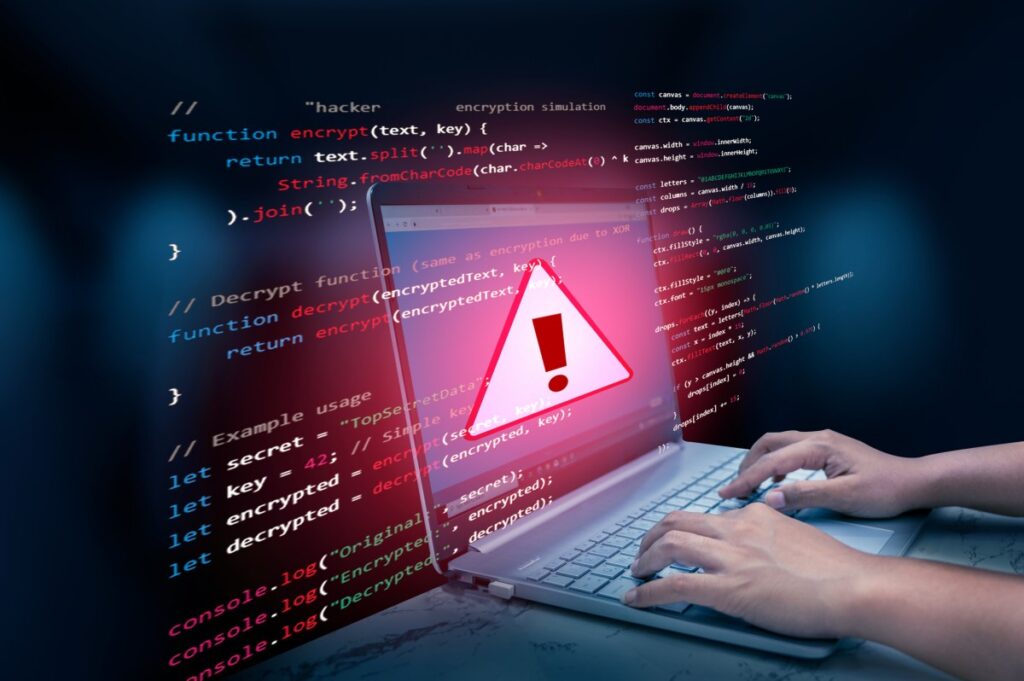
<strong>Image Credits:</strong>sarayut Thaneerat / Getty Images
4chan Hack Recovery: Site Returns After Two-Week Outage Citing Financial Struggles
4chan administrators are working to restore full functionality following a catastrophic hack that took the site offline for nearly two weeks
Table of Contents
The 4chan hack recovery process has officially concluded as the notorious image-sharing platform has returned online after nearly two weeks of complete downtime. The site, which has been a controversial cornerstone of internet culture since its founding, was taken down by what administrators describe as a “catastrophic” security breach on April 14, 2025. In a defiant blog post announcing their return, the 4chan team cited years of financial struggles and resource limitations as key factors that contributed to the security vulnerability.
The Hack: What Happened to 4chan?
The 4chan hack recovery became necessary after an attacker using a UK IP address managed to gain unauthorized access to one of the site’s servers. According to the official statement released on the 4chan blog, the breach was initiated through a “bogus PDF upload” vulnerability that allowed the hacker to infiltrate the system. Once inside, they proceeded to extract sensitive database tables and a significant portion of 4chan’s source code.
The Initial Attack
- Date: April 14, 2025
- Attack vector: Malicious PDF file upload
- Attacker origin: IP address traced to the United Kingdom
- Data compromised: Database tables and source code
- Discovery: Moderators noticed server vandalism
The 4chan hack recovery began immediately after moderators detected unusual activity on the servers. As a precautionary measure, the entire site was taken offline to prevent further access and damage. The leaked data reportedly included a list of the site’s moderators and “janitors” (volunteer moderators who help maintain the site). At least one janitor confirmed to TechCrunch that the leaked data appeared to be authentic, raising serious concerns about the privacy and security of the site’s staff.
During the extended downtime, some technology publications were quick to pronounce the controversial platform dead. Journalist Ryan Broderick wrote an article for Wired titled “4chan Is Dead. Its Toxic Legacy Is Everywhere,” which characterized the site’s evolution from an internet culture hub to what he described as “the beating heart of far-right fascism around the world.” The 4chan team responded defiantly on X (formerly Twitter), challenging Wired’s assertion with a simple question: “Wired says ‘4chan is dead.’ Is that so?”
4chan Hack Recovery Timeline
The 4chan hack recovery process spanned nearly two weeks, during which administrators worked to secure their infrastructure and repair the damage caused by the breach. Here’s a timeline of the key events:
Initial Hack
Hacker gains access to 4chan servers through a PDF upload vulnerability. Begins extracting database information and source code.
Site Shutdown
Moderators detect unauthorized access and vandalism. 4chan administrators take all servers offline to prevent further damage.
Data Leak Confirmed
TechCrunch reports that internal data, including a list of moderators and “janitors,” has been leaked online.
Recovery Work
4chan team works to assess damage, secure systems, and prepare for relaunch. Breached server is replaced with new hardware.
Partial Return
4chan begins coming back online with limited functionality. The team publishes a blog post titled “Still Standing” explaining the situation.
Ongoing Restoration
Site’s status checker shows boards and front page are operational, but posting, images, and thumbnails are still not working properly.
The 4chan hack recovery demonstrates the challenges faced by even established websites when dealing with sophisticated security breaches. Despite having operated for over two decades, 4chan proved vulnerable to attack, highlighting the importance of continuous security updates and adequate resources for infrastructure maintenance.
Financial Struggles Behind the Vulnerability
Perhaps the most revealing aspect of the 4chan hack recovery announcement was the site administrators’ frank admission about the financial challenges that contributed to their security vulnerabilities. In their blog post, the 4chan team stated that the root cause of their problems was “having insufficient skilled man-hours available to update our code and infrastructure, and being starved of money for years.”
“Ultimately this problem was caused by having insufficient skilled man-hours available to update our code and infrastructure, and being starved of money for years by advertisers, payment providers, and service providers who had succumbed to external pressure campaigns… Advertisers and payment providers willing to work with 4chan are rare, and are quickly pressured by activists into cancelling their services.”
— 4chan blog post, “Still Standing”
The statement paints a picture of a platform caught in a challenging financial position due to its controversial content and reputation. According to the administrators, external pressure campaigns have made it difficult for 4chan to secure reliable revenue streams, leaving them without the resources necessary to maintain proper security protocols and update their aging infrastructure.
Financial Challenges Faced by Controversial Platforms
The 4chan hack recovery situation highlights a broader issue in the internet ecosystem: how controversial platforms fund their operations when traditional revenue sources become unavailable. Sites that host contentious or politically charged content often face:
- Advertiser reluctance to associate with controversial content
- Payment processors refusing service due to reputational concerns
- Higher costs for basic services like hosting and DDoS protection
- Limited options for generating sustainable revenue
- Increased vulnerability to security threats due to resource constraints
This financial struggle creates a vicious cycle for platforms like 4chan: controversial content leads to advertising and payment processing restrictions, which in turn leads to limited resources for security and infrastructure, potentially making the site more vulnerable to attacks that further threaten its existence.
Technical Details of the Breach
The 4chan hack recovery blog post provided some technical insights into how the attack occurred and what vulnerabilities were exploited. According to the site administrators, the breach began with a “bogus PDF upload” that gave the attacker an entry point into one of 4chan’s servers.
Once inside, the hacker was able to access and extract multiple database tables containing user and moderator information. More critically, they also managed to obtain a substantial portion of 4chan’s source code, which could potentially reveal additional vulnerabilities or provide insights into how the site functions technically.
Technical Response Measures
As part of the 4chan hack recovery process, the site administrators have implemented several technical changes to prevent similar attacks in the future:
- Server Replacement: The compromised server has been completely replaced with new hardware
- PDF Uploads Disabled: The feature that allowed the initial breach has been temporarily disabled
- Flash Board Closure: The board dedicated to Flash animations (/f/) has been permanently taken offline due to security concerns with .swf files
- Infrastructure Review: Ongoing review of all code and systems to identify and patch potential vulnerabilities
- Enhanced Monitoring: Improved systems to detect unusual activity or potential breaches
The decision to permanently shut down the Flash animation board is particularly noteworthy in the 4chan hack recovery process. The administrators specifically mentioned that they saw “no realistic way to prevent similar exploits using .swf files,” suggesting that certain file formats present inherent security risks that the site is no longer willing or able to manage with its limited resources.
Current Status and Limitations
As of Sunday, April 27, the 4chan hack recovery was still in progress, with the site operating at partial capacity. According to the site’s status checker, the boards and front page were online and accessible, but several key functions remained offline or limited:
These limitations suggest that while the 4chan hack recovery has made significant progress, the site is still working to restore full functionality. The inability to post or upload images severely restricts the core purpose of the image board, indicating that substantial work remains before the platform returns to normal operations.
Despite these challenges, the 4chan team struck a defiant tone in their blog post: “4chan is back. No other website can replace it, or this community. No matter how hard it is, we are not giving up.” This statement reflects the determination of the administrators to maintain the platform despite the technical and financial obstacles they face.
Future Implications for Internet Forums
The 4chan hack recovery situation raises important questions about the sustainability and security of controversial internet forums in an increasingly regulated and commercially sensitive online environment. As advertisers and payment processors become more cautious about their associations, platforms that host contentious content face mounting challenges in maintaining their operations and security.
Lessons for Forum Administrators
The 4chan hack recovery case offers several important lessons for administrators of online communities and forums:
- Security updates should be prioritized even when resources are limited
- File upload functionalities represent significant security risks and require careful management
- Diversification of revenue streams is essential for long-term sustainability
- Regular security audits can help identify vulnerabilities before they are exploited
- Transparent communication with users during security incidents can help maintain community trust
The incident also highlights the tension between free expression and financial viability in the modern internet landscape. As 4chan’s administrators pointed out, external pressure campaigns can effectively cut off revenue sources for controversial platforms, potentially threatening their ability to implement proper security measures and maintain their infrastructure.
Whether 4chan can maintain its operations in the long term remains an open question. The 4chan hack recovery demonstrates both the resilience of the platform and the serious challenges it faces. As internet culture continues to evolve, the incident may come to be seen as either a turning point in 4chan’s history or the beginning of the end for one of the web’s most influential and controversial communities.
Regardless of one’s opinion on the platform’s content and community, the 4chan hack recovery case serves as a reminder of the fragility of even long-established websites in the face of security threats and financial pressures. For now, 4chan continues to operate, albeit with limitations, defiantly pushing back against those who would declare it dead.





